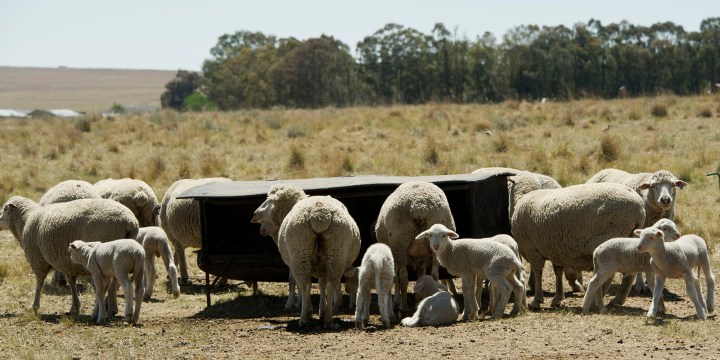BUSINESS MAVERICK OP-ED
A sleeping giant: Agriculture in Eastern Cape

The Eastern Cape is typically seen as a non-starter when it comes to agriculture but, in reality, the province is a notable player in a number of commodities. And, as it happens, in transformation and employment levels.
On 25 and 26 September I visited Eastern Cape at the invitation of The Co-op – an agribusiness based in Humansdorp. I used the visit to scan agricultural activities in the province, with an intention to assess whether there had been an increase in activity and in transformation.
My first stop was at The Co-op’s head office, where I received a broad overview of the province’s agricultural activity and its inclusive growth projects.
We have been observing Eastern Cape dam levels from a provincial average perspective and they seem healthy at levels over 50%. The reality though is that a number of dams close to agricultural activity have not been in good shape for months (see here for example). And this has taken a toll on the agricultural sector.
Aside from dryness, the variation or timeframe of rainfall occurrence has changed notably over the past few months, affecting optimal planting dates for various crops. This is a theme that links to a broader climate change story.
Eastern Cape’s agricultural contribution
Eastern Cape is typically seen as a non-starter when it comes to agriculture but, in reality, the province is a notable player in a number of commodities, including:
-
about 31% of South Africa’s milk;
-
roughly 27% of its citrus; and
-
about 39% of its wool.
This activity and other agricultural enterprises ensured 12% of South Africa’s agricultural jobs were created by Eastern Cape in the second quarter of 2019.
Policy matters
Similar to what we hear from agribusinesses in other provinces, land reform and water policies are at the centre of discussions. The Co-op and the Eastern Cape farming community at large are engaged in these debates and are hoping for positive outcomes that would ensure the sustainability and growth of the agricultural and agribusiness sectors.
Observations at farm level
A testimony of this was clear on the second day of my visit. I met commercial black farmers involved in citrus, lucerne, sheep, pineapple, peppers and blueberry farming. They are all running commercial entities – exporting some of their produce – and have created jobs for a number of people.
Each of these farmers acknowledged the government’s and The Co-op’s support and viewed the joint-venture approach as central to their successes. The government has made land and equipment available, while The Co-op has supplied production finance, technical advice and managerial skills.
Anyone who has travelled across the Eastern Cape will attest that there are areas that have limited economic activity, with the only prospect of livelihood being agriculture.
A case in point is Keiskammahoek (Qoboqobo), where we stopped at a 65ha farm, community-owned and supported by The Co-op. It farms blueberries and peppers and currently employs about 85 people. Indirectly, this means the farm benefits 595 people if it is assumed that each person supports an average family of seven.
This enterprise has brought vibrancy and economic activity to villages that typically depended on remittances from the cities. (Please see photos here, here and here)
The good news is that Eastern Cape can create many more “Keiskammahoeke” because of its abundance of under-utilised land. This is especially the case in the former Transkei region of the province. The former Transkei is not as dry as what we have observed in the former Ciskei region, which is positive for agricultural development and stimulating inclusive growth.
The “agricultural development promise” cannot be achieved in a vacuum. It needs government, community and private sector engagement and a common vision.
This is a theme that is starting to emerge from policymakers’ documents, most recently the National Treasury economic policy discussion paper which highlighted the need for a joint-venture approach to South Africa’s agricultural and rural development. This is the path to explore, not only through the rest of Eastern Cape, but the whole country. BM
Sihlobo is chief economist of the Agricultural Business Chamber of SA (Agbiz).


















 Become an Insider
Become an Insider